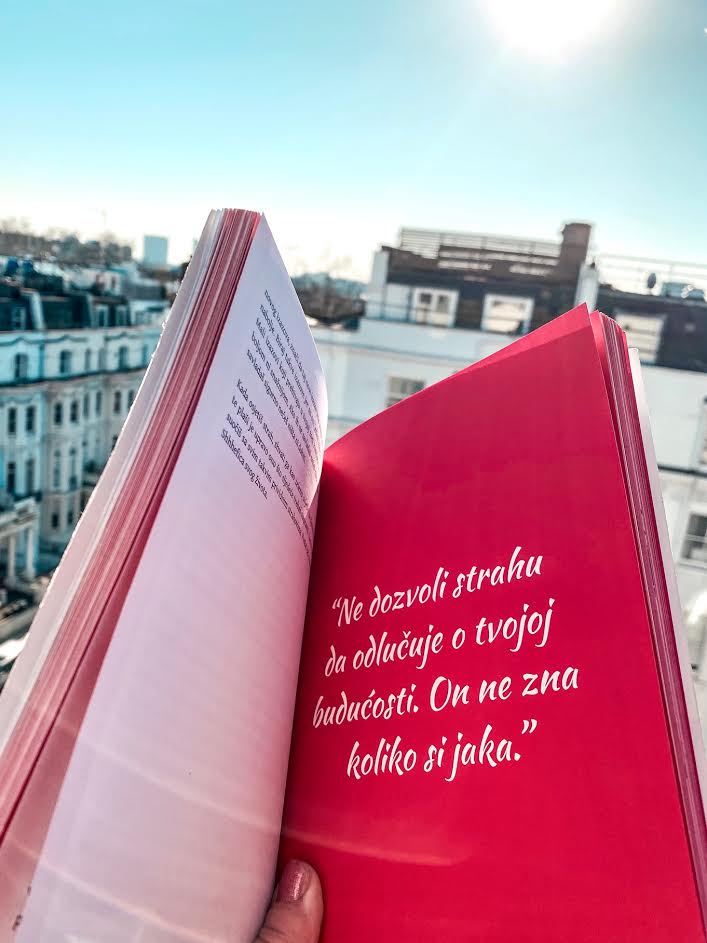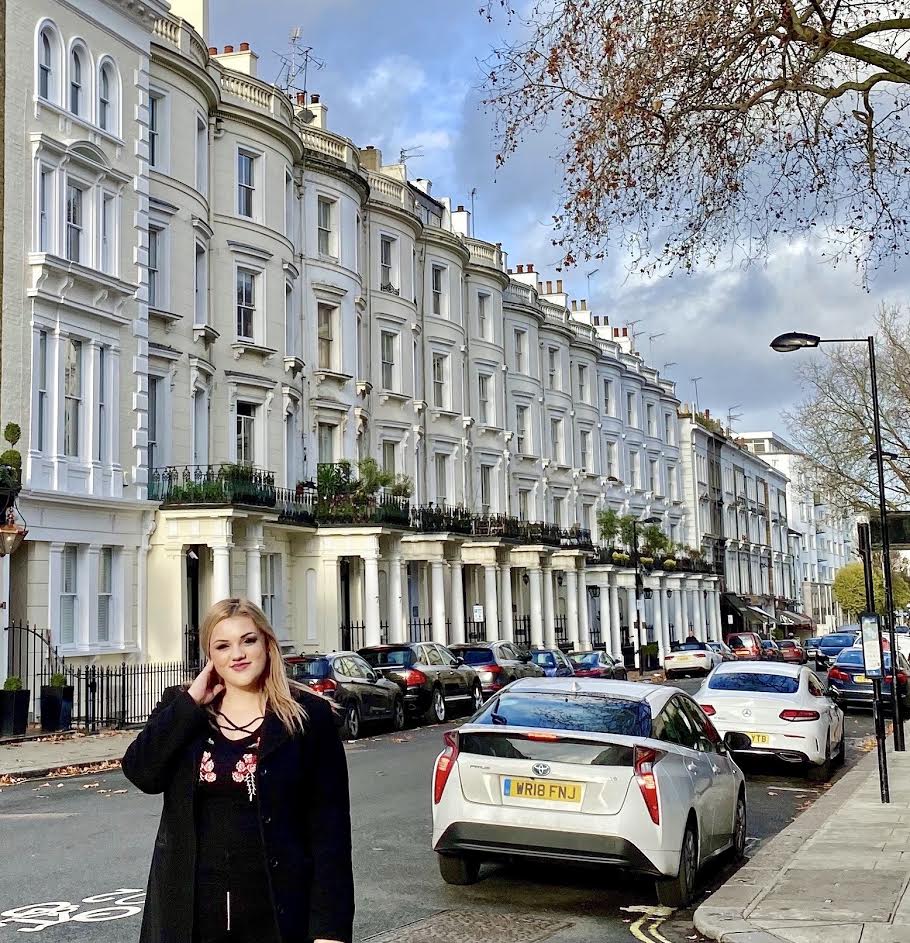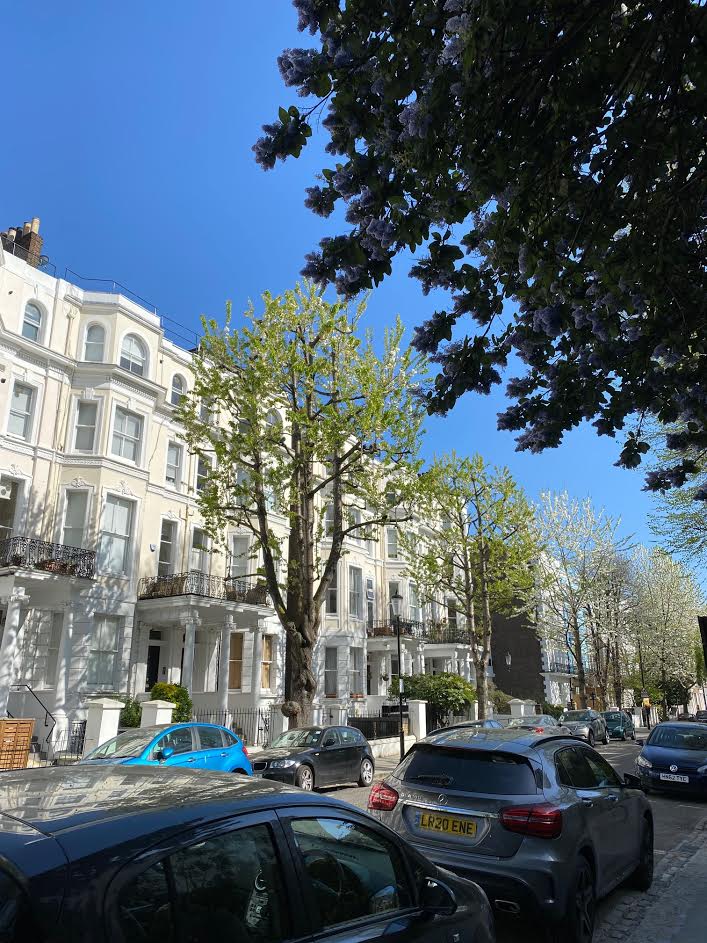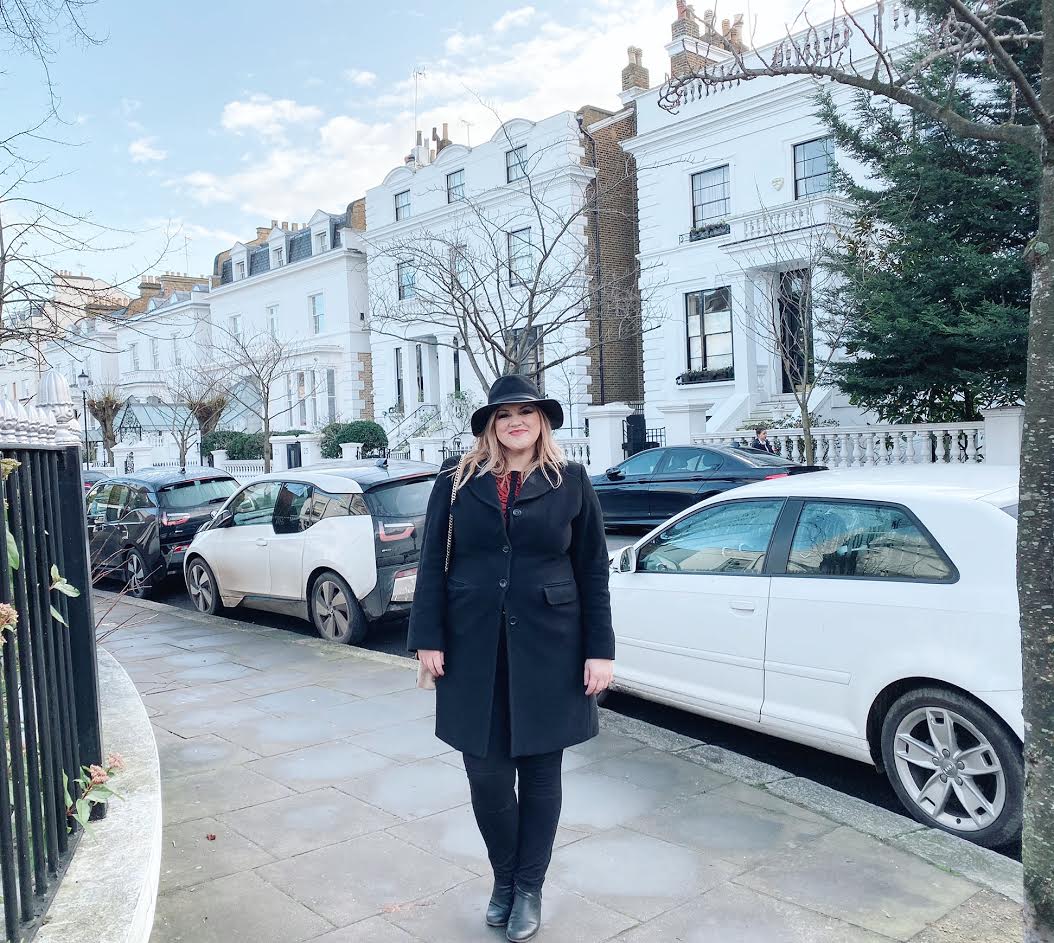April 13, 2020 - With as many Croatians living abroad as in the Homeland, what are the diaspora experiences of self-isolation? In the 7th of a new series, Corona Voices in the Croatian Diaspora, here is entrepreneur Tanja Dzido in London and originally from Zagreb.
Last week TCN started a feature series called Foreigner Self-Isolation In Croatia: Do You Feel Safer? I can honestly say we have never had such a response or so many incredible contributions. The countries of origin of these expats in Croatia literally from all over the world. So far we have had submissions from expats from Romania, USA, Ireland, UK, Mexico, Argentina, Spain, Singapore, Holland, Canada, India, Hong Kong, Venezuela, Latvia, China, Honduras, Hungary, Moldova, New Zealand, Japan and Germany. You can see all their stories here.
Given the success of the series (still going strong) and large interest, it made sense to expand it to look at this from another angle - how Croatians abroad are coping where they are. If you would like to contribute your story to Corona Voices in the Croatian Diaspora, please find the submission guidelines below. Next up, entrepreneur Tanja Dzido in London and originally from Zagreb.
Hello, my name is Tanja Dzido. I'm an entrepreneur from Croatia, the founder of Shhhefica.com and organizer of The Art of Feminine Leadership conference in Zagreb. I was named Female Role Model of the Year at the Central European StartUp Awards, and i am also the author of the succesful book "Budi Shhhefica svog života". In January this year I moved to London to expand my digital marketing business, but also to continue working on women empowerment initiatives and bring the most influential women leaders to Croatia.

Firstly, how are you? Are you alone/with someone? Tell us a little about your situation and sanity levels.
I'm doing surprisingly well but to be honest, it's not easy at all at times. I live alone and don't have many friends here as I've moved to London just in January this year. I was really excited about this life change and had a really good start. I was attending a lot of networking events, meeting a lot of new people, getting new clients and expanding my business. Then suddenly, all of this happened and I'm confined to four walls throughout the day. But I'm still blessed that I'm healthy and my family is safe.
When did you realise that corona was going to be a big issue?
I was following the situation in China and expected Europe to be hit, but not as soon and as much as it is now. Even when Italy went into lockdown, I was still hopeful that a cure or vaccine would surface before it spreads to other countries. I'm still shocked how everything has changed overnight and somehow feel I'm living in this odd dream from which I hope I will wake up soon.
When did you realise that corona was going to be a big issue in London in particular?
When London went into lockdown and all my clients started cancelling contracts. The UK resisted implementing this strategy for a while and when it finally did, I was then sure, the situation was really really bad. And then when the PM was in intensive care, it showed us how serious the situation is, no matter what your position, education, social or political circle you belong. We're all in this together.
Give us a timeline on when and how life changed.
Everything was perfect before the lockdown began. We were all aware of the virus but not aware of how serious it was. I was getting new clients in London and even rented office space starting from March. And then 10 days later this all started, bringing me back to the beginning. All my clients here were impacted and had to shut down so I've lost a significant amount of monthly income. Luckily, I still work for clients in Croatia which helps me to keep my head aboor water.
Tell us about your day. Do you/can you leave your apartment?
We're allowed to leave our homes once per day for daily exercise or grocery shopping. To be honest, I'm avoiding leaving the house because the energy outside is really heavy, so I leave my flat once or twice a week for grocery shopping and I try to structure my day so I have a good balance of work, personal time and video chats with my friends and family.
How are the authorities doing at handling the situation?
I live in central London and I've noticed the police here patrolling but not as much as it should. People are still walking around like nothing's going on, especially young people who think they're immune to it. I believe we should have much stricter measures and police to have more authority. Currently they're much more advisory than commanding, and nobody is taking them seriously.
You obviously keep an eye on your homeland. What is your impression of the way Croatia is dealing with the crisis?
Croatia went into lockdown much faster than the UK, and I believe it bought them time to deal with this situation better. I think they are handling the safety measures very well but I'm very disappointed with the economic measures and how Croatia has been treating its entrepreneurs. There hasn't been much done to provide support and guidance to businesses impacted with this situation.
Compare and contrast the responses of Croatia and the UK. Who is doing what better?
Croatia is handling the crisis better regarding public awareness and making sure everybody is following the safety guidelines. The UK is much more „laid back“ in that approach and there are a lot of people here who are taking this time as a personal vacation to go to the beach, eat and drink with friends. On the other hand, the UK has presented outstanding economic measures, both for businesses and employees and it showed that we're valuable to this economy and well protected.
What about official communications from the authorities, compared to your home country?
I believe the UK is much more advisory in its approach, acting like older brother concerned for its siblings. Looking from a communication standpoint, they have been handling this situation very well, with daily live press conferences and consistent updates on measures. But in a country as big and as diverse as the UK is, I believe the authorities need to be much firmer and stricter to make sure people follow rules. In that, I would say, Croatia is doing a much better job.
What's the one thing you wish you had taken with you into self-isolation?
I think we're all blessed to have a stable internet connection in this situation. It helps us to stay in touch with our loved ones, gives us the opportunity to work and make the best out of all the digital content, as well as following the news from around the world. But having a furry friend would be perfect in this situation. I've always loved dogs but I never had enough time to dedicate them the love and attention they deserve. Now I've got plenty of time for that.
One thing you have learned about yourself, and one thing you have learned about others during this crisis.
I've learned that I can manage self-isolation surprisingly well. Before all this happened, I couldn't imagine myself staying in for a weekend, let alone for a month. I'm a very outgoing person and usually have a busy social life. This situation, as challenging as it is, gave me a different perspective of what it means of having real connections with people, much deeper, not wider. I've learned people are much more compassionate and understanding in times of crisis. I hope we can all take our learnings back into the „normal world“ and make it a better one when this all ends.

If you could be self-isolating in Croatia, where would it be, and why?
It would be in Zagreb, where I've spent the last 10 years of my life and where I have a lot of amazing friends. Actually, just a week before the lockdown, I was in Zagreb for a few days. I went back to London on Saturday and on Monday the lockdown began.
I don't regret flying back to London and being here for the lockdown. I actually live in one of the most beautiful places in the world, Notting Hill, especially beautiful in springtime. So I can at least enjoy my daily walks and daydream about this all coming to an end.
Thanks, Tanja. Stay safe and see you on the other side. You can see all the stories in both this diaspora series, and the one on expats in Croatia on this link.
TCN is starting a new feature series on Croatian diaspora experiences of sitting out COVID-19 abroad and comparing your experiences to the situation in Croatia. If you would like to contribute, the questions are below. Please also include a para about yourself and where you are from, and a link to your website if you would like. Please also send 3-4 photos minimum to This email address is being protected from spambots. You need JavaScript enabled to view it. Subject Corona Diaspora
If you would be interested to record a video version for our partners www.rplus.video please let us know in the email. Thanks and stay safe.
Self-Isolation Voices from the Diaspora
Firstly, how are you? Are you alone/with someone? Tell us a little about your situation and sanity levels.
When did you realise that corona was going to be a big issue?
When did you realise that corona was going to be a big issue in New York in particular?
Give us a timeline on when and how life changed.
Tell us about your day. Do you/can you leave your apartment?
How are the authorities doing at handling the situation?
You obviously keep an eye on your homeland. What is your impression of the way Croatia is dealing with the crisis?
Compare and contrast the responses of Croatia and USA. Who is doing what better?
What about official communications from the authorities, compared to your home country?
What's the one thing you wish you had taken with you into self-isolation?
One thing you have learned about yourself, and one thing you have learned about others during this crisis.
If you could be self-isolating in Croatia, where would it be, and why?
TCN has recently become a partner in Robert Tomic Zuber's new R+ video channel, initially telling stories about corona experiences. You can see the first TCN contribution from this morning, my video from Jelsa talking about the realities of running a news portal in the corona era below. If you would like to also submit a video interview, please find Robert's guidelines below
VIDEO RECORDING GUIDE
The video footage should be recorded so that the cell phone is turned horizontally (landscape mode).
There are several rules for television and video news:- length is not a virtue- a picture speaks more than a thousand words
In short, this would mean that your story should not last more than 90 seconds and that everything you say in the report should be shown by video (for example, if you talk about empty streets, we should see those empty streets, etc.).
How to do it with your cell phone? First, use a selfie camera to record yourself telling your story for about a minute and a half. Ideally, it would be taken in the exterior, except in situations where you are reporting on things in the interior (quarantine, hospital, self-isolation, etc.). Also, when shooting, move freely, make sure everything is not static.
After you have recorded your report, you should capture footage that will tell your story with a picture, such as an earlier example with empty streets.
One of the basic rules of TV journalism is that the story is told in the same way as a journalist with his text. Therefore, we ask you for additional effort. Because we work in a very specific situation, sometimes you may not be able to capture footage for each sentence of the report. In this case, record the details on the streets: people walking, the main features of the city where you live, inscriptions on the windows related to the virus, etc.
The same rules apply if you are shooting a story from your apartment, self-isolation, quarantine. We also need you to capture footage that describes your story.
When shooting frames to cover your reports, it is important that you change the angle of the shot (in other words, shoot that empty street from several angles). Also, when shooting a detail, count at least five seconds before removing the camera to another detail.
The material should be about 5 minutes long (90 seconds of your report + frames to cover your story).
After recording everything, send us to Zagreb, preferably via WeTransfer to This email address is being protected from spambots. You need JavaScript enabled to view it.







